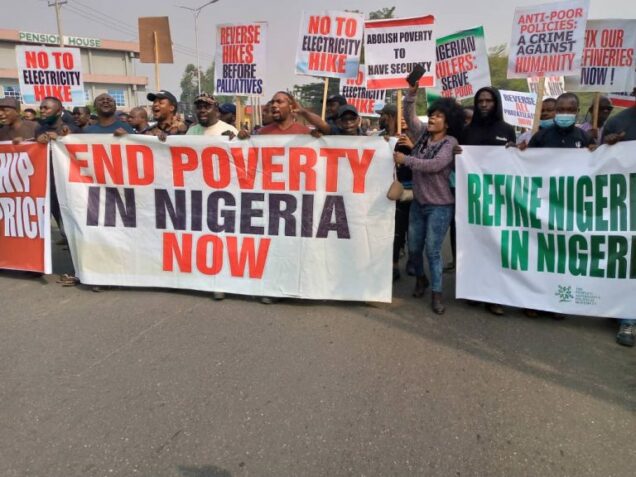Across the vast, sprawling African continent, a wild spark is spreading. Young Africans attempt to wrestle the graft-ridden continent from the precipice of economic stagnation and malfeasance. Growing discontent at rampant inflation and soaring living costs has spilled into the streets in mass youth-led movements. More than a month ago, Kenyan youths took to the streets to protest newly proposed tax reforms in what has been called the “Gen-Z” protests. Dozens of people have so far been killed amid tensions between the armed police and the dissenters. Following the unrelenting pressure, President William Ruto retracted the controversial tax bill, slashed public expenditures, and sacked his cabinet. The demonstrations, now in its sixth week, have kept pace notwithstanding, inspiring similar campaigns across the continent.
The din of protests has begun to echo in Africa’s most populous nation. From Lagos to Kano, young Nigerians are registering their frustrations at the skyrocketing inflation and the high cost of living. Since President Bola Tinubu’s floating of the naira in June 2023, the naira has slumped by more than 70%, becoming the world’s worst-performing currency. With inflation rising to a 3-decade high of 34.19% in June, staples like rice and bread have gone beyond the means of a great many Nigerians. A 50KG bag of rice, now priced at N84,000, far outstrips the national minimum wage of N70,000, recently signed into law. Young talents are fleeing abroad in search of greener pastures.
The protests, which have only begun today, are a release of pent-up frustrations from a notably resilient populace. In the same vein, they are acts of defiance against a government that is clueless, as it is insensitive. The Tinubu administration has not provided any clear-cut roadmap to lead the country to prosperity. Its policies have hardly translated into meaningful gains for the long-suffering populace. Rather, in the last year, the government has stifled innovation, robbed the poor and aggravated the anguish. In February, the federal government ascribed the naira’s decline to the manipulations by the cryptocurrency exchange Binance. Since then, the government has led a crackdown on digital-assets platforms, causing at least global cryptocurrency companies to close shop in the country. Amid this, the naira has continued its decline unabated.
Rather than assuage the ensuing crises, President Tinubu has stoked the tensions. The nationwide demonstrations have met with typical strong-arm responses, as state governments deploy squads of military forces to protest venues, armed to the teeth. These gun-toting armed men, whose families contend with hunger and insecurity, spray tear gas at the protesters in a forceful attempt at silence. In several other states, state governors have browbeaten residents into silence, with threats of jail sentences. This ensuing development brings an eerie sense of deja vu, renewing hatred for the APC regime.
Will the countrywide protests steer the country from the path of misgovernance to prosperity? Will it result in a decline in the cost of living and inflation for the 200-odd million Nigerians? It is perhaps too early to tell if the ongoing protests will have the same results as Kenya’s. What’s certain is that Nigerians are determined to brave the rain and overwhelming intimidation to bring their grievances to bear.
Across Africa, young people are rising in protest against economic stagnation and corruption. Last month, Kenyan youths launched the "Gen-Z" protests against proposed tax reforms, leading President William Ruto to retract the bill, cut public expenditures, and dismiss his cabinet. These protests have inspired similar movements in Nigeria, where young Nigerians are protesting against soaring inflation and the devaluation of the naira, which has lost over 70% of its value since June 2023. Despite a minimum wage increase, many can't afford basic staples. The government, led by President Bola Tinubu, has failed to offer clear solutions, further exacerbating public frustration. These nationwide protests are met with severe government crackdowns, including the deployment of military forces and threats of jail sentences, provoking widespread anger against the regime. While the future impact of these protests remains uncertain, the determination of the protesters is unwavering.






